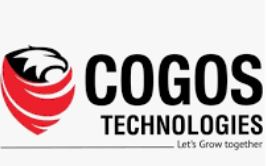COGOS was among the early movers in commercial EV adoption with 3-wheelers. However, the firm paused to recalibrate in response to evolving EV technologies, infrastructure, and customer expectations. Currently, COGOS is running pilots to evaluate suitable use-cases for both 3- and 4-wheeler EVs, with a focus on vendor viability, charging infra, and commercial alignment between customer pricing and vehicle costs, says Prasad Sreeram, CEO & Co-Founder of COGOS in an interview with EVolution Auto India.

Q: Logistics-tech has traditionally struggled with margins. What strategies has COGOS employed to drive sustainable profitability in such a competitive space?
Prasad Sreeram: COGOS operates as a tech-enabled aggregator, fulfilling logistics demand from registered B2B customers. Our vendor engagement model is highly efficient—vehicle providers are activated only when there’s a confirmed deployment requirement. There are no minimum guarantees or fixed costs from our end, which fundamentally helps us retain margins.
Additionally, we optimize asset utilization by enabling multiple trips during a contracted period, further improving overall margin profiles.
Q: The last-mile delivery challenge remains a major bottleneck in India. How is COGOS using technology to address inefficiencies in this space?
Prasad Sreeram: As a B2B-focused logistics platform, we serve corporates across sectors like e-commerce, FMCG, and third-party logistics. Our strength lies in a deeply integrated vendor network—spread across 450+ cities and towns—which allows us to fulfil last-mile delivery with precision and scale.
Q: Can you share specific examples where AI, ML, or IoT has led to measurable improvements in your last-mile operations?
Prasad Sreeram: Technology is central to operations at COGOS. Our proprietary platform, Medha, automates key workflows across scheduling, assignment, tracking, and trip closure. Through seamless integration with IoT devices, we manage hundreds of daily trips across cities with a lean operations team, delivering both scale and efficiency.
Q: As India gears up for a logistics transformation, where does COGOS see itself in the next 3 to 5 years?
Prasad Sreeram: We aim to lead City Logistics in India—addressing the most complex leg of last-mile delivery. Building on our current base, we’re expanding into First Mile and 3PL services, driven by growing demand from existing enterprise clients. We are also entering adjacent verticals like EV logistics, cold chain, and urban warehousing, which are crucial to the next phase of urban logistics evolution.
Q: What regions or sectors are you targeting in your next phase of expansion, and why?
Prasad Sreeram: We are currently strong in the East and Northeast, and will focus on deepening our service portfolio there. Our next phase involves:
- Southern and Western India– Enhancing revenue from current clients and onboarding new large-format customers.
- Northern India– Building presence across states where we currently have minimal operations, unlocking untapped demand.
Q: How is COGOS preparing for the integration of electric vehicles and sustainable fleet solutions into its logistics model?
Prasad Sreeram: COGOS was among the early movers in commercial EV adoption with 3-wheelers. However, we paused to recalibrate in response to evolving EV technologies, infrastructure, and customer expectations. Currently, we are running pilots to evaluate suitable use-cases for both 3- and 4-wheeler EVs, with a focus on vendor viability, charging infra, and commercial alignment between customer pricing and vehicle costs.
Q: Do you envision COGOS expanding beyond India, or is the domestic opportunity large enough for now?
Prasad Sreeram: India offers significant growth opportunities, and we remain focused on deepening our domestic footprint. That said, international expansion is very much on our radar. Our logistics platform, Medha, is being developed as a SaaS product, enabling cross-border scalability. We are already exploring Southeast Asian markets, with Philippines being a strong contender for our first international foray.